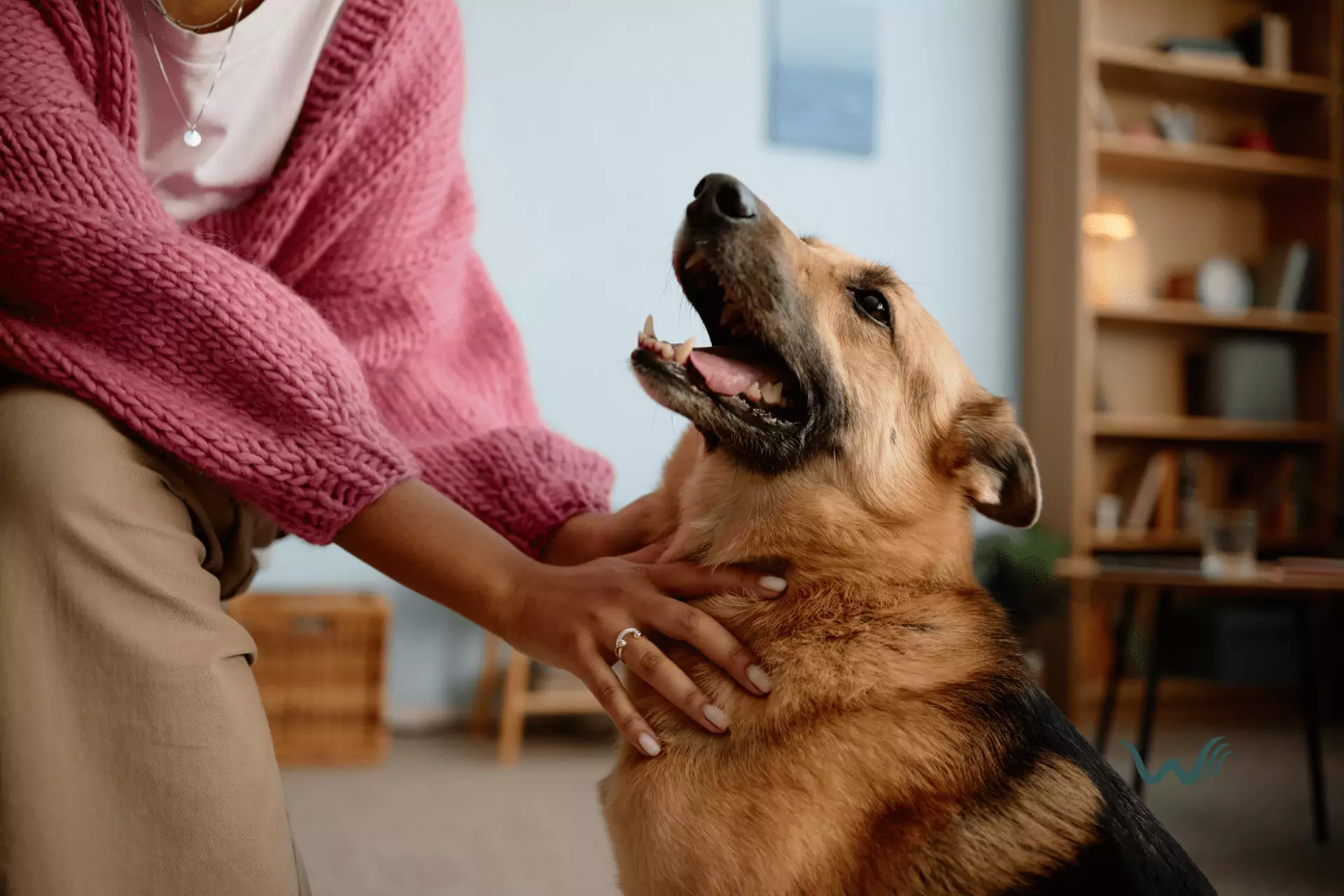

Top 5 Dog Breeds For Families: Which Is Right For You?
by Haley Mills
Last updated: April 20, 2024
Verified and Approved by:
Angela Morris,
MSW, LCSW
Fact Checked

Are you thinking of adding a furry friend to your family? If so, you’re in luck! In this article, we will explore the top 5 dog breeds that are perfect for families. Whether you have children or just want a loyal and affectionate companion, we have the information you need to make the right choice.
From the classic Labrador Retriever to the playful Beagle, we’ll discuss each breed’s characteristics, temperament, and suitability for family life. So, sit back, relax, and let us guide you in finding the perfect four-legged addition to your family.
When choosing a dog for your family, consider various factors such as size, energy level, and temperament. That’s why we have compiled a list of the top 5 dog breeds known for their family-friendly nature and compatibility. Each breed has its own unique qualities that make them an excellent fit for different types of families.
Key Takeaways
- Labrador Retrievers are a great choice for families due to their friendly and gentle nature, making them suitable for children.
- Golden Retrievers are known for their loyalty and are often used in therapy settings, making them a great choice for families looking for a companion dog.
- Beagles are energetic and playful, but require consistent training and engagement to keep them happy and well-behaved.
- Bulldogs are gentle and affectionate, making them a low maintenance choice for families, especially those living in apartments.
- Boxers are active and protective, but require early socialization and training to ensure they are well-behaved. They have high energy levels and need regular exercise to thrive in a family setting.
Labrador Retriever: The Classic Family Companion
If you’re looking for a lovable and loyal family companion, the Labrador Retriever is the perfect choice for you. Labrador Retrievers have a long history and have been known as family pets for many years.
Bred initially in Newfoundland, Canada, fishermen used them as working dogs to retrieve fish from the water. Their love for water and their strong swimming abilities make them great companions for families who enjoy outdoor activities, such as swimming or hiking.
Labrador Retrievers are known for their friendly and gentle nature, making them excellent around children of all ages. They are patient, tolerant, and can handle the rough play that often comes with kids. In fact, Labrador Retrievers are often referred to as “nanny dogs” because of their ability to watch over and protect children.
They are also highly intelligent and eager to please, which makes them easy to train. However, be sure start training and socializing them from a young age to ensure they grow up to be well-behaved family pets. With consistent training and positive reinforcement, Labrador Retrievers can easily learn basic commands and become obedient family members.
Golden Retriever: The Friendly and Loyal Choice
With their friendly and loyal nature, Golden Retrievers are the perfect addition to any family. These dogs are known for their gentle and patient temperament, making them excellent therapy dogs. Golden Retrievers are often used in therapy settings because of their ability to provide comfort and emotional support to those in need.
They have a natural instinct to empathize with people and can easily pick up on their emotions. This makes them ideal for individuals who may benefit from the presence of a therapy dog, such as those with anxiety or depression.
In addition to their therapeutic qualities, Golden Retrievers are highly trainable, making them well-suited for a family setting. They are intelligent and eager to please, making them quick learners.
Training a Golden Retriever can be a fun and rewarding experience for both the dog and the family. It’s important to start training early and be consistent with commands and expectations. Positive reinforcement techniques, such as treats and praise, work best with Golden Retrievers. They respond well to rewards and will be more motivated to learn and obey commands.
Beagle: The Energetic and Playful Pup
The Beagle is an energetic and playful pup that will bring joy to your family. Known for their friendly nature and love of play, Beagles make excellent companions for families with children. However, their energy levels can be quite high, so proper training and engagement is essential to ensure they channel their energy effectively.
When it comes to training a Beagle, consistency is key. Start early and establish a routine that includes regular exercise and mental stimulation. Beagles are intelligent dogs, but they can be stubborn at times, so it’s essential to be patient and use positive reinforcement techniques. Reward-based training methods, such as treats and praise, work well with Beagles and help to keep them motivated.
In addition to training, provide plenty of opportunities for your Beagle to burn off their energy. Beagles are active dogs that love to explore and sniff around, so taking them on daily walks or runs is essential. They also enjoy playing games, such as fetch or hide and seek, which can help to keep them mentally engaged and physically tired. Puzzle toys and interactive feeders are also great to keep their minds occupied.
Bulldog: The Gentle and Affectionate Breed
Bulldogs are known for their gentle and affectionate nature, making them a great choice for families. These lovable dogs are often called “the low-maintenance family pet” due to their easygoing temperament.
Bulldogs are not overly active and are content with moderate exercise, making them a perfect fit for families with a more relaxed lifestyle. They are known to be excellent with children and get along well with other pets, making them a wonderful addition to any household.
In addition to their gentle nature, Bulldogs are also the perfect breed for apartment living. They’re not known for their excessive barking and are generally quiet dogs, which is ideal for living in close quarters with neighbors. Bulldogs are also relatively low-energy and don’t require much space to roam and play. They’re perfectly content with short walks and indoor playtime, making them a great companion for apartment dwellers.
– Are Gentle Dog Breeds also Suitable for Families?
Boxer: The Active and Protective Family Dog
Consider adding a Boxer to your family for an active and protective companion. Boxers are known for their energetic and playful nature, making them an excellent fit for families with an active lifestyle.
Boxers require early socialization and training to ensure they become well-rounded family pets. Early socialization is crucial for Boxers to develop good behavior and manners. Exposing them to different people, animals, and environments from a young age is recommended. This will help them become comfortable and confident in various situations, reducing the chances of aggression or fearfulness.
Boxers are naturally protective of their families, so teaching them appropriate ways to interact with strangers and other animals is important. In addition to socialization, managing their high energy levels is essential for a happy and healthy Boxer. These dogs have a lot of energy to burn, so providing them with regular exercise is a must. This can include daily walks, runs, or play sessions in a securely fenced yard. Engaging in agility training or obedience classes can also help stimulate their minds and expend energy.
Frequently Asked Questions
Are there any health concerns or common medical issues associated with Labrador Retrievers?
Labrador retrievers are generally healthy dogs but prone to a few health concerns. Common medical issues include hip and elbow dysplasia, obesity, and certain eye conditions such as cataracts and progressive retinal atrophy.
How much exercise does a Golden Retriever typically need on a daily basis?
Golden retrievers typically require about 1-2 hours of exercise per day. You can take them for long walks, play fetch, or even enroll them in activities like agility training or swimming to keep them active and engaged.
Do Beagles tend to get along well with other pets in the household?
Beagles have a generally friendly and sociable nature, making them compatible with other pets in the household. Proper socialization is key to ensure a smooth introduction, gradually introducing them and supervising their interactions.
Are Bulldogs prone to any specific behavioral issues or challenges?
Bulldogs can be prone to certain behavioral issues, including aggression. However, with proper training techniques, these challenges can be managed effectively. Establishing clear boundaries and providing consistent, positive reinforcement is important to ensure a well-behaved bulldog.
What type of training and socialization is recommended for Boxers to ensure they are well-behaved and obedient?
To ensure that Boxers are well-behaved and obedient, providing them with consistent and positive training is recommended. Socialization from an early age is also crucial to prevent potential behavioral issues and help them become well-adjusted family pets.
Certify Your Emotional Support Animal Today

Why You Can Rely on Us?
At Wellness Wag, we believe your pet deserves care rooted in both science and compassion. Each article is carefully researched, written in clear language for pet owners, and then reviewed by qualified professionals to ensure the information is evidence-based, current, and practical for real-life care. Our goal is to help you feel confident in making informed decisions about your pet’s health and well-being.
Reviewed by
Angela Morris, MSW, LCSW
Angela is a licensed clinical social worker with 20 years of experience in patient advocacy and community mental health. She has assisted numerous clients with ESA evaluations and brings a deep understanding of disability accommodations, ensuring that all information is accurate, supportive, and practical.

Written by :
Haley Mills
Last Updated :
April 20, 2024












